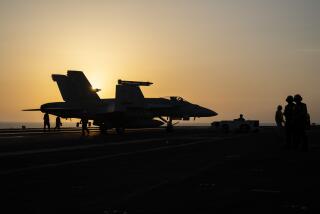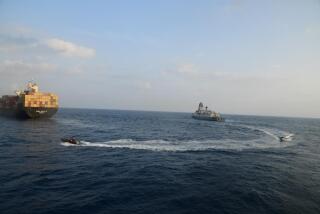Yemen: Abundance of Roadblocks
- Share via
The U.S. destroyer Cole has begun its long journey home from Yemen, where a terrorist explosion on Oct. 12 killed 17 of its crew, injured 39 and left the $1-billion ship heavily damaged. The inquiry into the attack continues, with frustration rising among American officials who complain that the Yemeni regime is being less than fully cooperative. Resemblances to the investigation that followed the 1996 bombing that killed 19 Americans at a U.S. barracks in Saudi Arabia have been noted. In that case the Saudis blocked some avenues of inquiry, and the investigation ultimately came to a dead end.
Part of the problem in Yemen is sensitivity about appearing too close to the United States at a time of increasing Arab hostility toward this country. President Ali Abdullah Saleh insists “it is out of the question for Americans to investigate Yemenis.” Part of the problem may also well be that Saleh isn’t too keen on pinpointing the source of the terrorism, for fear of inviting revenge attacks on Yemeni facilities.
Yemen says it is questioning Islamic activists from a number of countries and that it has a photograph of an Egyptian believed to be one of the ship bombing suspects. But despite pleas from President Clinton, Secretary of State Madeleine Albright and FBI Director Louis J. Freeh that Yemen treat U.S. investigators as full partners, Saleh has yet to agree to let Americans directly question witnesses and suspects. U.S. investigators are largely limited to reading the transcripts of interrogations.
Washington’s primary goal is to identify and punish the source of what is now seen as an attack that was long and carefully planned and that required a specialized knowledge of explosives. In time, U.S. intelligence agencies may be able to achieve that goal. But the effort promises to be longer and more difficult than need be unless Yemen removes its impediments.
More to Read
Sign up for Essential California
The most important California stories and recommendations in your inbox every morning.
You may occasionally receive promotional content from the Los Angeles Times.









